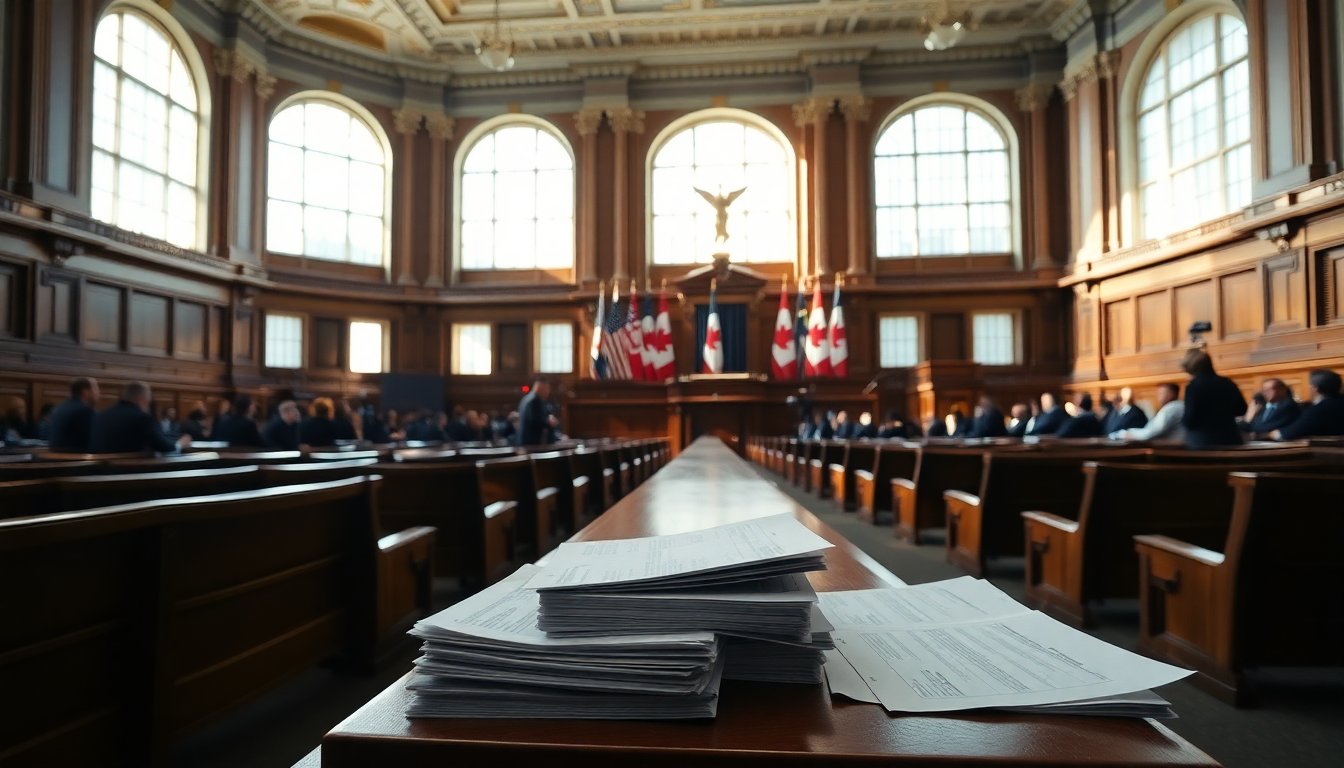Table of Contents
The return of Parliament marks the beginning of a significant chapter in Canadian politics, with various pressing issues poised to dominate discussions. This fall, the political arena is expected to witness heightened confrontations, particularly between Conservative Leader Pierre Poilievre and Prime Minister Mark Carney. As both leaders prepare for a showdown in question period, the dynamics of their interaction will be closely scrutinized, especially given Poilievre’s reputation for agility in debate.
Political Confrontations and Key Issues
This session will showcase the first direct encounter between Poilievre and Carney since Carney’s election as Prime Minister. Poilievre’s recent victory in the Alberta byelection has brought him back to the House, and he is eager to assert himself. His approach this fall promises to shift towards proposing policy alternatives rather than merely critiquing the government. Political analyst Jon Dugal emphasizes that the Prime Minister held his own during previous sessions against seasoned opponents.
In the lead-up to Parliament’s return, Poilievre has taken a firm stance on bail reform, criticizing the Liberals for their perceived leniency towards criminals. This issue is expected to be a recurring theme, as the Conservative Party aims to capitalize on public sentiment regarding law and order. Furthermore, Poilievre has expressed concerns about governmental inefficiency, particularly regarding major projects, suggesting that the new federal office is merely an additional bureaucratic layer.
Key Political Figures and Their Roles
As the session unfolds, various cabinet ministers will find themselves at the center of intense political scrutiny. Immigration Minister Lena Metlege Diab is navigating one of the most contentious political topics: immigration. Her Conservative counterpart, Rempel Garner, is poised to challenge her aggressively, with both politicians known for their adept debating skills. The growing public discourse surrounding immigration is likely to intensify, creating a battleground for these political figures.
On the financial front, Finance Minister François-Philippe Champagne is gearing up to present his first federal budget this October. His tenure as Finance Minister has begun under significant pressure to balance spending cuts with investments in crucial areas such as defense and housing. The Conservatives have already launched critiques, claiming that the government’s fiscal policies may lead to higher debt and inflation rates for Canadians.
Housing, Trade, and Other Pressing Issues
Housing is poised to be a central issue this fall, especially with Prime Minister Carney’s announcement of the Build Canada Homes initiative. This program will likely face scrutiny from opposition parties as they dissect its implications and effectiveness. Internal government documents have acknowledged that the current housing crisis is detrimental to the economy, intensifying the urgency for viable solutions. Conservative critic Scott Aitchison is expected to leverage his expertise to effectively question the government’s housing policies.
Moreover, the government’s trade diversification strategy is set to be unveiled, a response to the evolving global trade landscape. The opposition, led by Conservative critic Adam Chambers, will undoubtedly challenge the government’s progress on this front, emphasizing the need for proactive measures in light of shifting international relations.
Other cabinet ministers will also be under pressure to justify their policies, particularly those handling sensitive international issues. Foreign Affairs Minister Anita Anand will navigate Canada’s stance on conflicts abroad, while Trade Minister Dominic LeBlanc will focus on securing tariff relief amidst ongoing negotiations with the U.S.
Expectations for the Upcoming Session
As Parliament reconvenes, the expectations are high for a session characterized by fierce debates and strategic maneuvering. Political analysts predict that issues surrounding the economy, immigration, and housing will be at the forefront, with both the government and opposition eager to sway public opinion. The effectiveness of the Prime Minister in managing these debates will be critical, as will Poilievre’s ability to translate his debate skills into tangible political gains for the Conservative Party.
Overall, the upcoming parliamentary session promises to be a pivotal period for Canadian politics, one that could reshape the political landscape in anticipation of future elections.


